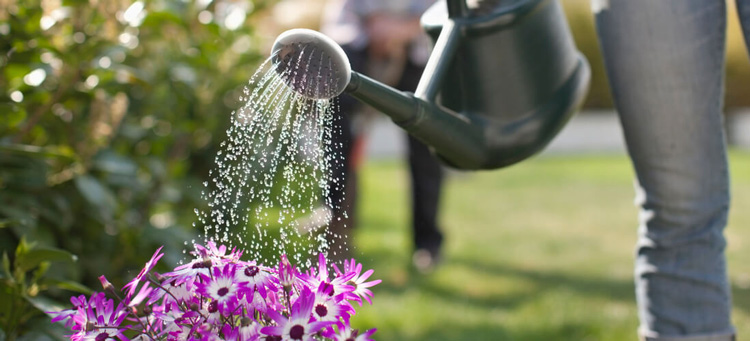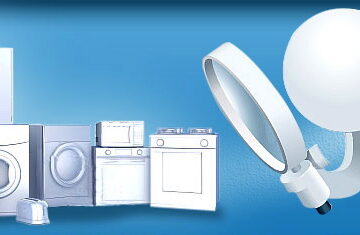How Hard Water Affects Plants

Plants at home are one of the great joys of having your own space. Whether you’re an avid gardener or just a fan of greenery, nothing lifts the spirits like an enthusiastically growing plant. Window boxes, flower beds, home gardens, and potted house plants are all just as enjoyable to keep. They bloom best when given the right balance of water, light, and mineral nutrients.
Understandably, the mineral content of your home water matters. That’s why you should be aware of whether your home taps run hard or soft water. Hard water has a load of extra minerals including salts and bicarbonates. Calcium, magnesium, and iron are commonly packed into hard water. These minerals are what leave behind that chalky residue and make your hands feel dry after washing. But what about how hard water affects plants in your home and garden?
Hard Water Creates “Scale”
The most important thing to understand about hard water is “Scale”. Scale is the official name for the residue left behind when hard water dries on a surface. You know scale because you’ve scrubbed that chalky-feeling residue from your bathtub and sink a million times. Scale is mostly salt, the same thing that happens when a salted pot of water evaporates or boils down into salt crystals. That’s why it feels dry after the water is gone.
Scale also happens to have several other household downsides.
Household Downsides of Hard Water Scale
- Builds up inside and clogs pipes
- Clogs dishwasher sprayers and other water appliances
- Reduces sudsing (and effectiveness) of soap
- Builds in fabric and makes them stiff, then sour
- Dries skin and causes acne
- Makes hair dull and brittle
For something that is so harmless to drink, hard water is not great for the household.
How Scale From Hard Water Affects Plants
Hard water is, overall, bad for plants. The trouble is that scale buildup happens anywhere that the H2O is separated from the suspended minerals. For plants, this happens at the roots. When the roots absorb hard tap water, that scale of salt and calcium carbonate form a chalky layer over the roots, just like it clogs pipes.
Plants watered with hard water need to be repotted more often to deal with calcium buildup in the soil and to free the roots from any scale-armor around them. Signs of hard water damage to your plants include pale and yellow-colored leaves.
Gardening with Hard Water
Some plants are better or less adapted to the minerals in hard water. Hard water tends to have a higher ph value, making it more base and less acid, aka alkaline. This reduces the acidity of the soil, which can have profound impacts on everything from plant health to bloom colors. There are some ways to balance how hard water affects plants, like repotting frequently and by adding extra acid to the soil.
Many fertilizers are acidic, but they also contain salt, which hard water has too much of. Mild, natural acids like vinegar and lemon juice can sometimes be used to treat plants visibly suffering from scale sickness.
Softening Your Home’s Water for the Garden
If your garden or house plants are ailing due to hard tap water, there are solutions. The best solution is to install a whole-home water softener system so that your health, pipes, appliances, and garden all benefit from the upgrade.
There is one special requirement: you’ll need a resin water softener. Salt-based water softeners remove the damaging minerals but add a little sodium to the tap water along the way. For plants, this is not always beneficial. Resin beads, however, are inorganic and leave no residue in the water after removing the chalky earth minerals.
—
Sodium-free soft water is fantastic for your home garden. By removing rogue minerals that scale up your roots, you regain control of your garden’s mineral balance. Whether you’re letting your green thumb blossom or maintaining a few hardy potted plants, soft water is the safe and healthy way for plants to absorb tap water through their roots.
By softening your entire home’s water, you ensure that even the hose outside runs plant-safe water, not to mention all the other household benefits like softer hair, skin, and laundry and less plumbing maintenance in the future.
For more on water softening systems for your home, contact us today!



